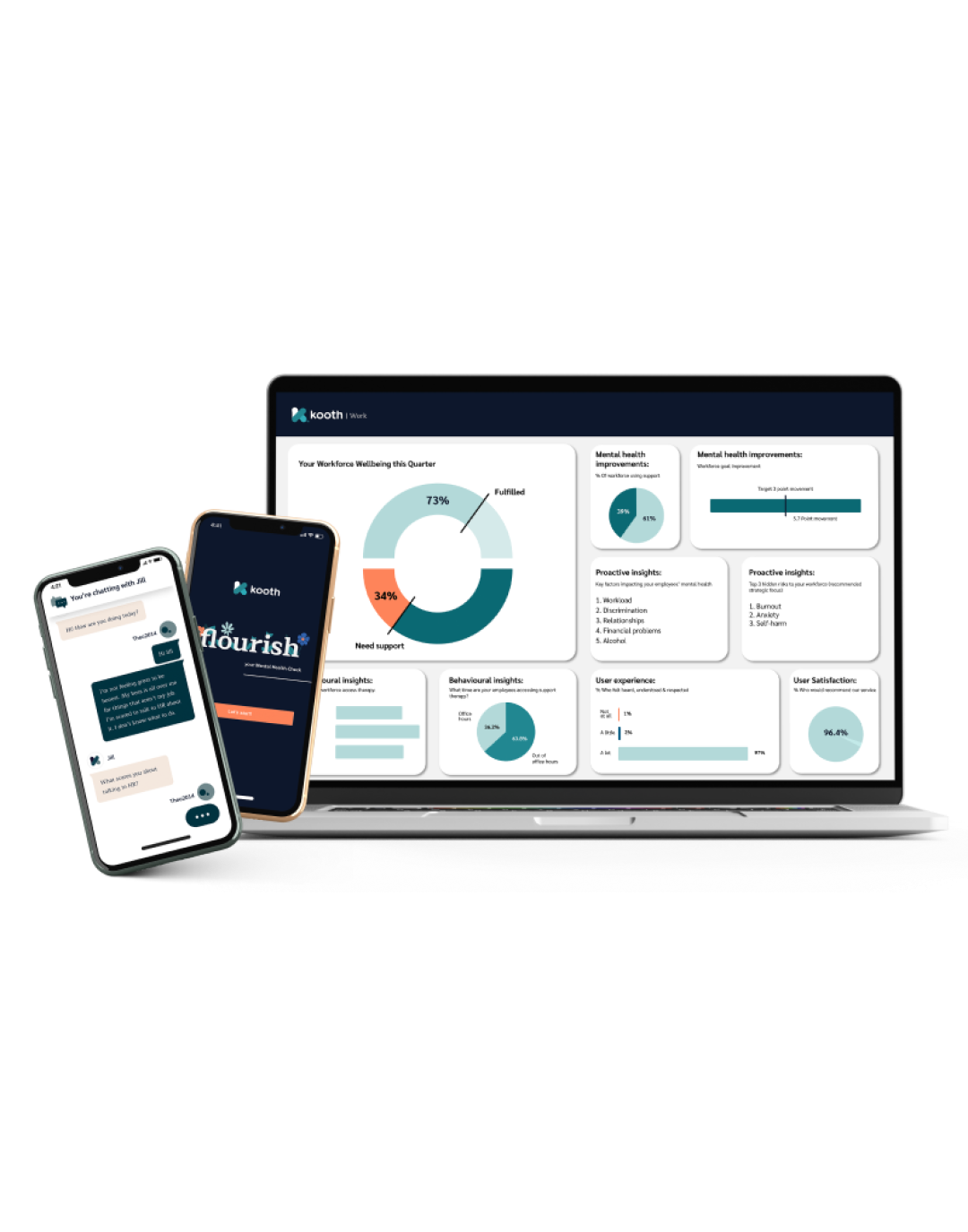Even the most successful people can falter. People on TV, people who run big business, give lectures, run countries. Sometimes, in some situations, we can feel like an actor or a fraud. Like we’re not good enough. Fearful that someone will find out.
Professor Brene Brown is a world authority on vulnerability. Her TED talk on The Power of Vulnerability has accumulated more than 43 million views and she has written five best-selling books. Yet even she has wobbled. When she was accepted on to a PhD programme in her early career, she thought: “Wait until they find out that they let me in by accident.”
Closer to home, the leader of the SNP, Nicola Sturgeon, recently confessed to experiencing imposter syndrome, saying: “Even though I have been in politics for a long time, I have been First Minister for four years, there will be days when I think ‘should I even be here? Is somebody about to find me out?”
The imposter phenomenon
The term “impostor phenomenon” was first introduced in 1978 by researchers who defined it as an individual experience of self-perceived intellectual phoniness (fraud). More than forty years later, imposter syndrome is still impacting lives and careers as much as it ever did; a recent survey showed it affects a staggering 62% of people at work in the UK.
This stat comes as no surprise to executive and personal coach Katie Harvey, who has supported many clients who have seen their career – and lives – suffer as a consequence. “I see imposter syndrome a lot. Clients who identify with it tell me they want to hide, and that they feel a sense of shame. It happens a lot when people move outside their comfort zones, so when they get a new job or get promoted, for example.”
This view is underlined by the experience of psychotherapist Neil Young who has seen how some work environments can lead to aspects of mental ill-health. “Often people present with imposter syndrome when everyone around them believes that they’re doing the job well. This can be driven by perfectionism, so if someone makes a small mistake, they can be very hard on themselves. They’ll beat themselves up about it and think: I shouldn’t be here.”
According to Young, the cause can be a lack of support at work or in a client’s life: “If people don’t have that support, if they don’t have intimate relationships, whether they are sexual relationships or relationships with close friends they can call on, or members of their family – and if they don’t have a strong sense of a relationship with themselves – then they can get into quite a shameful place. They think: I should be able to deal with this”
Harvey also sees it affecting other areas of life: “People can experience imposter syndrome anywhere where there is vulnerability, at work or in social situations. Essentially, when the expectations of people around them don’t meet with how they’re feeling inside. It can manifest in different ways, physically and emotionally, from new job nervousness, to a lack of sleep, loss of appetite and increased anxiety. In more chronic, longer-term cases, it can have far-reaching consequences. A lack of confidence, for example, can lead to depression and other conditions.”
Suzi Edwards-Alexander, founder of Appartenir, a recruitment organisation for high tech businesses, agrees imposter syndrome is widespread: “It’s depressing how often I come across it. Over the last ten years, it seems more common to have experienced it than not.”
In the tech sector specifically, Edwards-Alexander has seen how it can affect women in particular: “Some women at university experienced being the only woman in the room – or one of a small number. They may continue to have that experience as they move into a career where they are one of a very small number of women. This can lead to a chronic sense of feeling they don’t belong. They can feel ‘othered’ and different. I don’t, however, see it as a gendered issue and know that there are plenty of men experiencing imposter syndrome, though they may find it much harder to talk about.”
According to Edwards-Alexander, it is possible for people to find a way through. She follows a structured coaching approach, asking clients to describe themselves and their careers: “I always start by asking a client to talk me through their career; most people are very aware of their experience with imposter syndrome and raise it very quickly. Ultimately, I see my role as helping people see the world as it is, and go through a process to achieve that.”
She also sees an issue with work culture when tackling issues related to imposter syndrome: “Imposter syndrome can be indicative of a problem with the work environment, where you find places which are not psychologically safe, with no space to fail. My sense is that that is a breeding ground for imposter syndrome.”
Google’s research into what sets successful teams apart from other teams at Google found ‘psychological safety’ was key. It describes a psychologically safe environment as a place where “Team members feel safe to take risks and be vulnerable in front of each other”, describing it as “far and away the most important” of successful team dynamics.
Key to taking risks or showing vulnerability is abandoning ideas of perfectionism. In their exploratory paper, “Modelling Imperfection and Developing the Imperfect Self; Reflections on the Process of Applying Self-Compassion”, authors Dr Hannah Wilson and Ciara Joyce noted “how staff members given ‘permission’ to be imperfect has allowed them to feel more able to be themselves, and consequently be more connected to the team, as well as being able to openly seek support or disclose when they are struggling.”
This sense of being able to feel vulnerable in a safe space is how Harvey sees coaching working to support those suffering with imposter syndrome. It begins with a client feeling able to voice their feelings without fear of judgement: “Imposter syndrome thrives in a place of secrecy. You may believe you’re the only one experiencing it. People tend to feel they mustn’t share their feelings, but doing so is when it starts to dissolve. By sharing, feelings of being a fraud or a fake start to lessen.”
Case study – from Katie Harvey
"A woman I worked with was promoted into a senior leadership position in a large organisation. She was promoted very young; colleagues spoke of her ‘meteoric rise’ through the company. But where previous promotions had felt good, this one felt different. The new role gave my client a lot of responsibility. There was a lot of publicity surrounding her age.
"My client had been able to accept her journey to date, but the recent promotion had taken her out of her comfort zone. She contacted me with a raging case of imposter syndrome. She felt sure someone would find her out and felt she didn’t deserve to be where she was.
"Her behaviour at work reflected her need to protect herself. She wasn’t delegating anything. She became hugely perfectionist. She worked long hours and, defensively, refused any help. She became dictatorial, taking a command and control approach. She was behaving exactly the opposite way to a good leader. Her colleagues had expressed surprise as she had previously worked collaboratively.
"It was all an attempt to hide this huge vulnerability. For my client, the ability to share her innermost thoughts and feelings in a safe space was a massive relief. We worked together to build her awareness of her situation. Together, we found that it came from the big deal made around her age and her sense of responsibility.
"We talked about imposter syndrome; my client learned it was a universal feeling, having previously been convinced she was the only one to have experienced it. We built up evidence pointing to her strengths, her experience, the skills that had got her to this point. We discussed why her team had respected and admired her. Slowly she began to open up to getting help at work. She found a mentor with whom she could talk openly. There were areas where she needed to upskill and she now felt comfortable to ask for help. Sharing her thoughts and feelings enabled her to progress and feel happier."
Harvey finds there is often an “aha!” moment when clients realise how common imposter syndrome is:
“When clients share their feelings, they realise how normal they are and how universal an experience it is. In doing so in a safe space, they are not mocked or taunted, but respected and listened to. From here, we can work on confidence, looking at strengths, building up evidence for those strengths, giving the brain those positive messages to bring about a healthier perspective.”
Support in the workplace
But while individuals may choose to get the help they need through the NHS or privately, employers should also be offering their workforce the right support. A recent Institute of Directors poll of 700 managers found 40% had been approached by staff with a mental health concern, up from just over a quarter in 2017. It found, however, that only 17% of firms offered mental health training for managers.
Edwards-Alexander believes that employers have to do more, particularly to support leaders in their organisations, “If organisations say ‘Bring your whole selves to work!’ then they’re going to have to do more, offering access to mental health care and support. This must be part of the promise: we’re committed to taking care of all of you because we asked all of you to be here.”
Ultimately, if we are to address feelings that give rise to imposter syndrome, we have to start with ourselves and we have to ask more from our employers. There is an unquestionable argument for organisations to create positive working cultures and provide support, just as there are grounds for individuals to work on their self-acceptance.
As Dr Hannah Wilson and Ciara Joyce put it, “…if we can find the courage to acknowledge our imperfections with kindness and understanding, and accept ourselves as good enough, then our lives, and the lives of those around us, will be better for it.”






